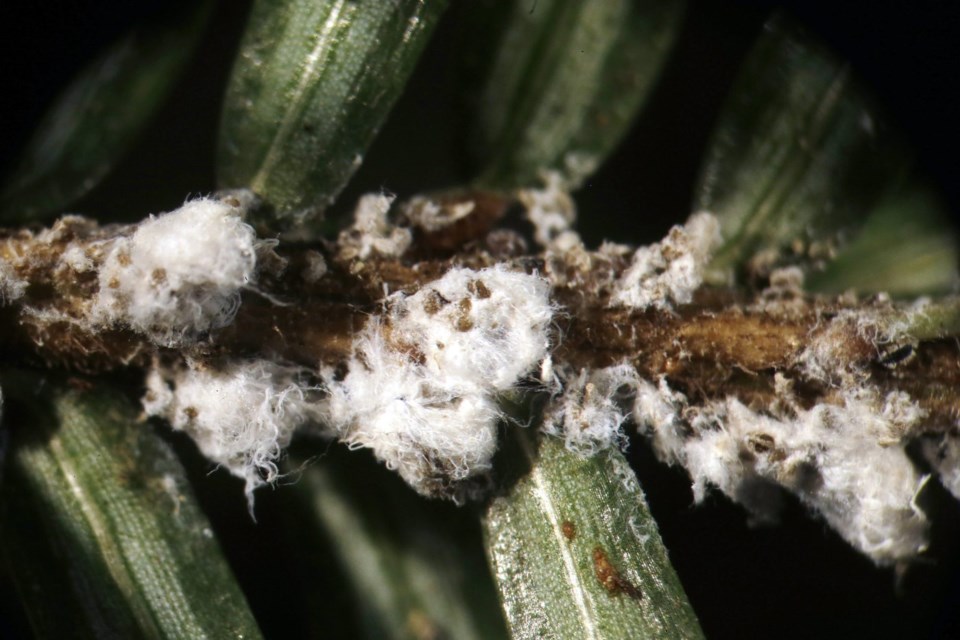FREDERICTON — The offspring of beetles imported from British Columbia are ready to take up the fight against an invasive insect that is killing hemlock trees in Nova Scotia.
Last fall and spring, about 5,000 Laricobius nigrinus beetles — affectionately called Lari by scientists — made an overnight journey from the West Coast.
Lucas Roscoe, research scientist with the Canadian Forest Service, said that in the fight against the invasive woolly adelgid that is destroying swaths of hemlock trees in Nova Scotia, the first step was to make sure the Lari beetle could survive a Nova Scotia winter.
They were released across six sites in Nova Scotia and Roscoe, along with other scientists, waited to see if the tiny black flying predators would live.
In one of the sites, scientists placed cages of imported beetles and about 60 per cent of them were able to survive the winter in Nova Scotia. "Now, there is a caveat to that. It was a comparatively mild winter ... so it's something that we'd have to keep an eye on," Roscoe said. "But it is very encouraging that we did get survival."
The scientists also visited the six sites this October, a year after the first releases, and found the beetles had reproduced, he said.
"The adults live from generally October into about February," he said. "These adults are active during the winter, where they feed on the adelgid. The adelgid is also active during the winter."
The woolly adelgid was first seen in southwestern Nova Scotia in 2017 and the peppercorn-sized insect has since spread north, Roscoe said. It can be spread by wind, birds, animals or even humans. It kills trees by sucking out the sap, which causes the hemlock needles to fall off and the tree to wither. The woolly adelgid gets its name from the fluffy, cotton-like layer in which it lays its eggs.
Aided by climate change and mild winters, research has suggested the insect could wipe out about 90 per cent of hemlocks in Nova Scotia. It has also been seen in parts of Ontario.
Hemlocks are a keystone species, which means large populations of birds, animals and plants depend on these trees, Roscoe said. They grow in areas where others cannot, such as in river valleys or streams and alongside lakes and ponds.
There are chemicals that can be sprayed to combat the woolly adelgid but Roscoe said they would be cost-prohibitive and labour intensive. The Nova Scotia project costs about $72,000, which included shipping the beetles from –°¿∂ ”∆µ
This is not the first time that the beetles have been used in tackling this invasive species. The beetle was first introduced in eastern United States about 20 years ago and has been fighting woolly adelgids in the area since.
The next step for scientists is to evaluate whether the beetles have been able to destroy the woolly adelgid in the hemlock trees in those six sites, Roscoe said.
"It's looking positive for us. So our next steps will be to evaluate, what are the effects on woolly adelgids, and what are the effects on hemlock health in those areas," he said. "But that study will be a multi-year, multi-site study that will take some time to develop."
This report by The Canadian Press was first published Nov. 13, 2024.
Hina Alam, The Canadian Press




